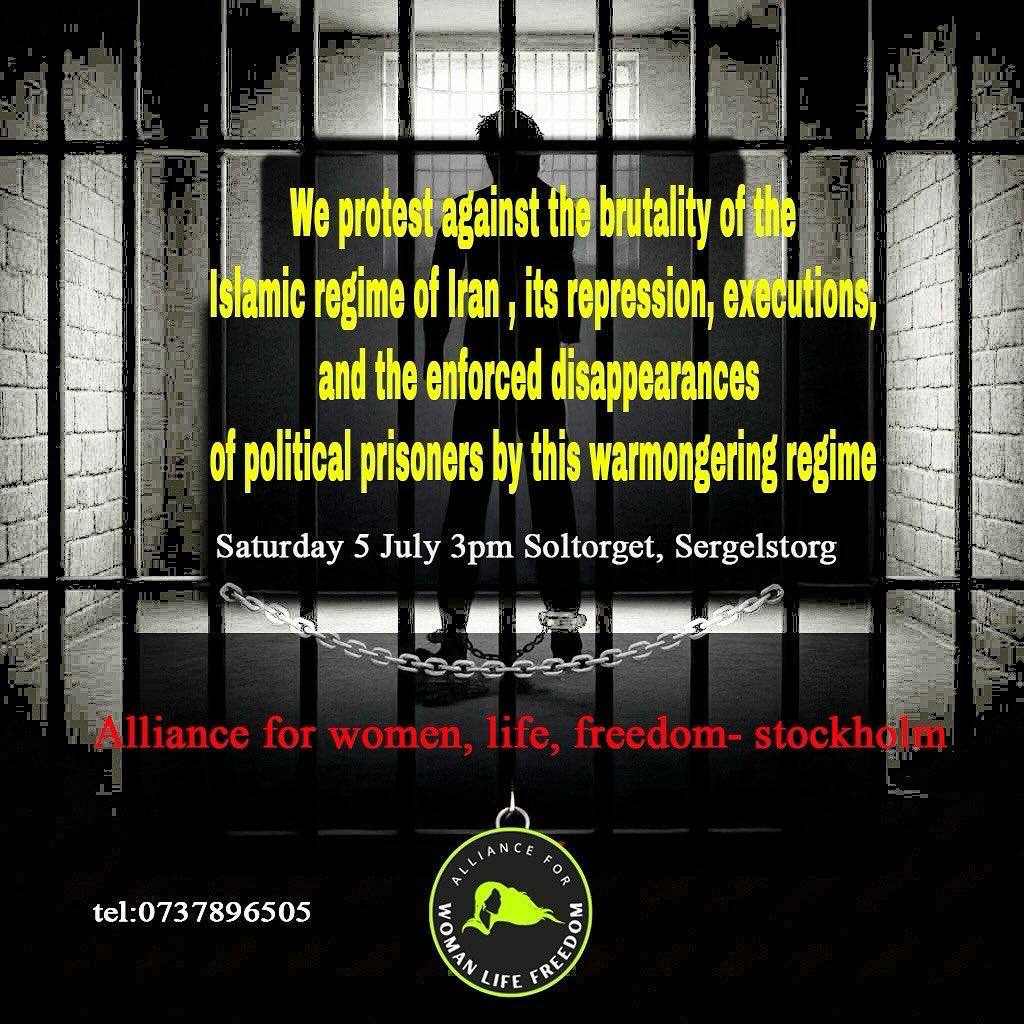
According to the Balochistan Human Rights Group (BHRG), on Saturday, July 5, 2025, in Stockholm, Sweden, amid intensified repression following recent clashes between the Islamic Republic of Iran and Israel, Ms. Fariba Borhanzehi, a human rights activist and BHRG representative, delivered a candid and impactful speech, warning about the escalating violence and human rights violations in Balochistan, attributing them to the persistent indifference of the international community.
In her remarks, she highlighted the Islamic Republic’s consistent pattern of exploiting external crises to intensify internal oppression, stating: “Whenever the Islamic Republic faces international pressure, it multiplies domestic repression. However, after the recent war, these crackdowns have become far more severe and brutal in regions like Balochistan, all in complete global silence.”
Referring to what she called “the regime’s cheapest form of repression,” Ms. Borhanzehi emphasized that Balochistan has long been a victim of security-driven policies. Now, in the days following the war, the oppression has taken on broader dimensions, including internet blackouts, quasi-military conditions, widespread arrests on espionage charges, death sentences for teenagers, deportation of undocumented citizens, and indiscriminate shootings that have claimed the lives of women and children.
She provided several examples of recent victims to illustrate the depth of the tragedy:
– Hasniyeh Kalkali, a 40-year-old teacher and mother of four, was shot dead by Islamic Republic forces in the street while waiting for her daughter after the war.
– On July 1, 2025, security forces, equipped with heavy military gear and drones, raided the village of Gunich in Khash County, resulting in the deaths of Lali Bameri and Khan Bibi Bameri, and the wounding of 11 women, including a pregnant mother who lost her fetus.
Ms. Borhanzehi also addressed the alarming situation of Baloch prisoners, noting: “Between April 8 and June 8, 2025, at least 63 Baloch prisoners were executed. Even more concerning is the confirmation of death sentences for several Baloch teenagers in the early days of the war.”
She named a few of these teenagers:
– Mohammad Darvish Narouei and Yasin Kabdani, both 18 at the time of their arrest, now facing execution on charges of ‘moharebeh’ (waging war against God).
– Benyamin Kuhkan, a 16-year-old who, after enduring severe physical and psychological torture, was transferred to solitary confinement, with no information available about his whereabouts.
Ms. Borhanzehi further stressed that in Balochistan, every Baloch prisoner, even those charged with “ordinary” offenses, is effectively a political prisoner. She added: “Teenagers as young as 15 and 16 are arrested solely due to family ties with a political activist, like ‘Walid,’ ‘Adham Narouei,’ and ‘Mohammad Zeineddini,’ who, despite having their charges dismissed in court, remain in detention simply because of their kinship with killed individuals.”
In closing, Ms. Borhanzehi emphasized that silence in the face of these structural atrocities paves the way for their repetition and intensification. Addressing the international community and the people of Iran, she said: “The Iranian regime must know that every act of repression, under any pretext, will come at a cost. We are the voice of all victims. The lives of Yusef, Hasniyeh, Khan Bibi, Lali, and all those killed matter to us. Balochistan is alive, and we will never be silent.”
She concluded her speech with the following statement:
“No to repression, no to executions, no to warmongering, no to apartheid against the Baloch people!”

